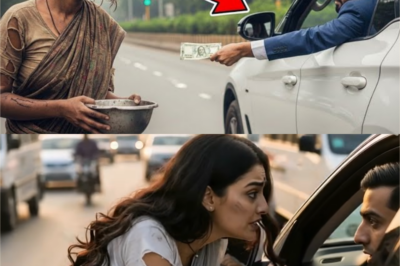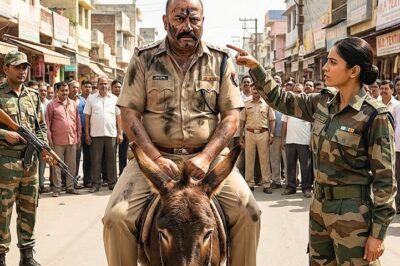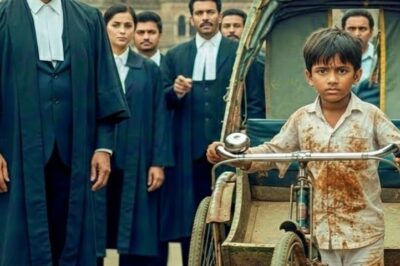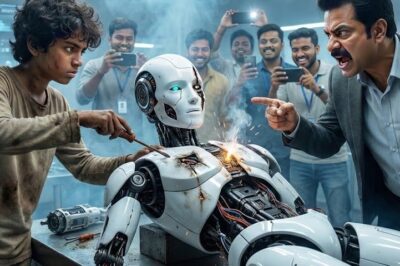Johny Lever’s Daughter Jamie Lever Exposes SHOCKING Casting Couch Experience
The glamour of the film industry often conceals its darker side. For decades, conversations around exploitation and manipulation have lingered in whispers—barely acknowledged, mostly ignored. While much attention has previously been focused on the struggles of outsiders trying to break into Bollywood, recent revelations indicate that even those with industry lineage are not spared. Jamie Lever, daughter of legendary comedian Johnny Lever, has come forward with a shocking experience that underscores how widespread and dangerous the casting couch culture remains in the entertainment world.
In an interview with Zoom, Jamie opened up about an incident that could have easily gone very wrong. Reflecting on the early days of her career, she recounted how vulnerable she was without a professional manager to protect her. At that time, she was handling her own communications and career inquiries. Her contact information circulated among various casting agents, many of whom she trusted out of necessity and hope. One such person reached out to her, claiming to be an international film director. The man contacted Jamie with the offer of an audition for an international film project. For any actor, especially in the beginning stages of their journey, such opportunities are golden and not something to be ignored. Believing in the possibility of a breakthrough, Jamie agreed to audition.
What followed, however, was not a professional interaction but a disturbing encounter. Jamie was asked to join a Zoom call for the audition. When the session began, the man had his camera turned off, explaining that he was currently in transit and unable to appear on video. Jamie, trusting the explanation, continued with the conversation. He told her that the audition was for a bold role and began directing her to perform a scene based on a fictional situation. The man asked Jamie to imagine that she was in a scene with a 50-year-old man and needed to seduce him. At this point, Jamie became uncomfortable but remained professional. But then, the man crossed a line—he told her that she could even take her clothes off if she wanted to. That was the final straw.
Shocked and disgusted, Jamie immediately ended the call. She later reflected that had she reacted differently, the situation could have spiraled into something far more dangerous. The man could have recorded the call and used it for blackmail or public humiliation. In that moment, Jamie realized the gravity of what had nearly happened. The entire encounter served as a terrifying wake-up call. It wasn’t just about a failed audition—it was a reminder that the industry, even in its seemingly polished and progressive state, still harbored individuals willing to exploit the dreams and vulnerabilities of aspiring actors.
Jamie emphasized that until then, she had never experienced anything like this in Mumbai. Growing up as the daughter of a respected and well-loved artist, she had been somewhat shielded from the murkier side of show business. But this incident proved that no one is truly safe, not even the children of seasoned insiders. It exposed a truth that many still deny or downplay—that sexual harassment and exploitation do not discriminate based on background or family name.
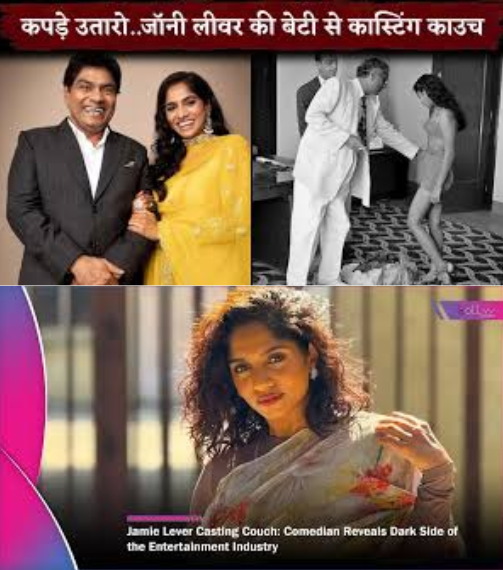
Her candid disclosure also revealed another disturbing reality: many girls from outside the industry, those without any connections or support, might not be as lucky. They may not recognize the warning signs or know how to escape such situations. Jamie’s experience serves as a cautionary tale not just for aspiring actors, but for the industry at large. It is a stark reminder of how predators continue to use the veil of professionalism and the lure of opportunity to trap and exploit.
The casting couch culture is not new. Over the years, many actresses and female professionals from Bollywood and other film industries have spoken about the systemic abuse they’ve encountered. From unsolicited advances to blackmail, the stories share common themes of power imbalance and manipulation. However, what makes Jamie’s experience stand out is that she is not an outsider. She is part of the very system that is often seen as inaccessible to the uninitiated. Her ordeal dismantles the myth that nepotism automatically guarantees safety or immunity.
In fact, Jamie’s testimony might indicate that predators are becoming more sophisticated in their tactics. By presenting themselves as international filmmakers or project leads, and leveraging online tools like Zoom, they can hide behind digital anonymity. It makes it easier for them to operate without accountability. The virtual nature of auditions, especially post-pandemic, has made it difficult to maintain checks and balances. Actors, in search of work, are now more accessible than ever—but so are predators.
It is worth considering the psychological impact such an incident can have. While Jamie was able to quickly identify the red flags and remove herself from the situation, the trauma of the experience doesn’t just vanish. Fear, distrust, and hesitation often linger long after the incident itself. For someone in the early stages of their career, such trauma can hinder growth, kill confidence, and cast a long shadow over future professional interactions.
Jamie Lever’s story should not be viewed in isolation. It needs to be seen as part of a larger, ongoing issue within the entertainment world—an industry that, for all its glitz and glamour, still lacks robust mechanisms to protect its artists. Casting calls are still largely unregulated. Background checks for so-called casting directors are rarely done. And when abuse does occur, victims often choose silence over justice, fearing stigma, professional retaliation, or public shaming.

Her courage to speak out deserves recognition. In sharing her experience publicly, Jamie has not only protected other aspiring artists from falling into similar traps, but she has also contributed to a necessary dialogue. Her voice adds to a growing chorus of women who are refusing to stay silent any longer. And that is how change begins—not with sweeping policies, but with brave individuals speaking their truth.
Unfortunately, the entertainment industry’s dark underbelly thrives in silence and complicity. For every person who comes forward, there are countless others who suffer in silence. Jamie’s survival story is important because it ended before irreversible damage was done. But how many others have not been as fortunate?
The need for industry reform is urgent. Regulatory bodies and industry unions must create safer audition protocols, including verified platforms for remote auditions, guidelines for digital safety, and support systems for reporting harassment. Managers and talent agencies must also do more to educate newcomers about the signs of exploitation. It is essential to foster a professional environment where safety, respect, and boundaries are non-negotiable.
Moreover, the public needs to remain engaged in these discussions, not just when a viral interview surfaces, but consistently. As audiences, consumers, and fans, we have the power to hold the industry accountable by demanding transparency and integrity from the people we admire on screen. Exploitation flourishes in cultures of hero worship and blind loyalty—cultures that overlook misconduct because of fame or success.
Jamie Lever’s experience may be deeply unsettling, but it is also illuminating. It forces us to confront the uncomfortable reality that the film industry, for all its progressive image and outward sparkle, still harbors deeply regressive and harmful practices. And unless these issues are addressed head-on, the cycle will continue—leaving more young artists disillusioned, damaged, or worse.
Let Jamie’s story be a reminder that no dream is worth risking one’s dignity and safety. Let it be a warning that even in the most familiar spaces, caution is essential. But most importantly, let it be the beginning of a conversation that can lead to real change—where every artist, regardless of name or fame, can pursue their passion without fear.
Play video :
News
तलाकशुदा IPS पत्नी लिए पति ने दांव पर लगा दी अपनी जान, पूरी कहानी जानकर हर कोई रो पड़ा…
तलाकशुदा IPS पत्नी लिए पति ने दांव पर लगा दी अपनी जान, पूरी कहानी जानकर हर कोई रो पड़ा… ….
“50 लाख लेकर तलाक… फिर सड़क पर भीख! पति से मुलाकात ने बदल दी जिंदगी”😱
“50 लाख लेकर तलाक… फिर सड़क पर भीख! पति से मुलाकात ने बदल दी जिंदगी”😱 . . . “50 लाख…
जब एक आर्मी अफसर के साथ बदसلوकी हुई | आर्मी की एंट्री ने सब कुछ बदल दिया | New Hindi Moral Story
जब एक आर्मी अफसर के साथ बदसلوकी हुई | आर्मी की एंट्री ने सब कुछ बदल दिया | New Hindi…
11 साल का रिक्शावाला बच्चा जिसे पुलिस ने पीटा—पिता निकले हाईकोर्ट जज 😱 फिर जो हुआ 😱
11 साल का रिक्शावाला बच्चा जिसे पुलिस ने पीटा—पिता निकले हाईकोर्ट जज 😱 फिर जो हुआ 😱 . . ….
जिसे सब भिखारी समझ रहे थे… उसी कूड़ा बिनने वाले ने ठीक करदिया 500 करोड़ का रोबोट…?
जिसे सब भिखारी समझ रहे थे… उसी कूड़ा बिनने वाले ने ठीक करदिया 500 करोड़ का रोबोट…? . . ….
Gelin yılbaşında çocuklarıyla geldi. Eve kimse dönmedi…
Gelin yılbaşında çocuklarıyla geldi. Eve kimse dönmedi… . . . Gelin Yılbaşında Çocuklarıyla Geldi. Eve Kimse Dönmedi… Bölüm 1: Stanitsa’ya…
End of content
No more pages to load


